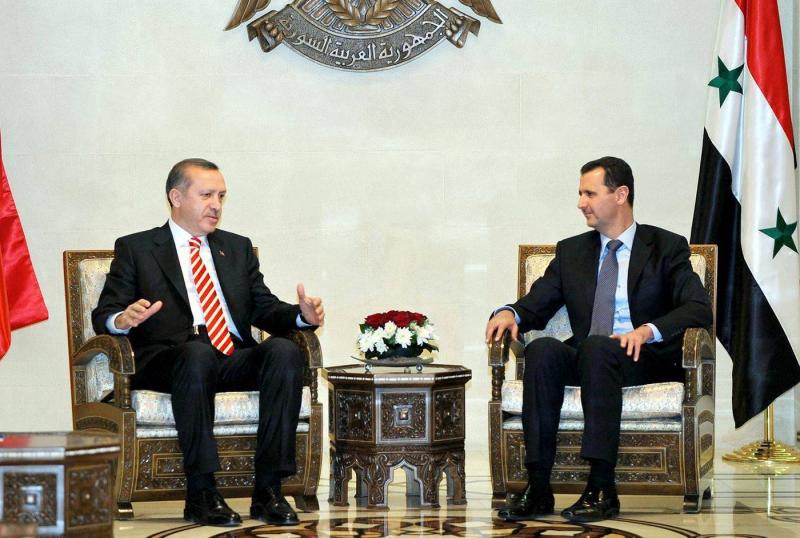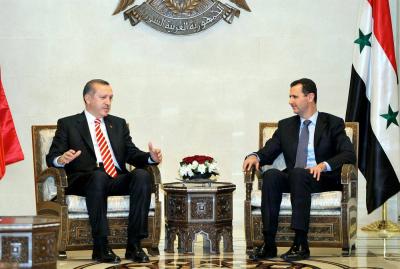Turkish President Recep Tayyip Erdoğan's recent statements have repeatedly included calls for a meeting with Syrian President Bashar al-Assad. Although Assad had previously shown a positive gesture, his stance has not evolved to match the "momentum" from Turkey. Erdoğan's latest invitation occurred during his participation in the NATO summit, where he stated he had invited "Mr. Assad" two weeks prior to meet in "Turkey or a third country." He also announced that he instructed his Foreign Minister, Hakan Fidan, to communicate regarding the arrangement of this meeting to "overcome the estrangement and move forward in starting a new process."
Prior to his remarks from Washington, Erdoğan had invited Assad twice, one of which was for a meeting in Turkey. However, the Syrian president and his official institutions have yet to respond positively or negatively. Assad, who Erdoğan had often described as "the killer" during the early stages of the Syrian revolution, recently broke some of the deadlock by declaring his openness to all initiatives related to the relationship between Syria and Turkey. He stated that these initiatives should be "based on the sovereignty of the Syrian state over its entire territory and the fight against terrorism and its organizations," without mentioning the previous condition he had set for initiating dialogue, which was the withdrawal of Turkish forces from Syria.
Based on this, experts and observers believe that Assad's retreat from the "withdrawal" condition, at least provisionally, gives a boost to the "dialogue-building process" between Ankara and Damascus, and Erdoğan's subsequent statements increased the momentum even further. It is still unknown whether Assad and Erdoğan will meet in the near future, whether in Turkey or in "a third country."
#### "Serious Factors Behind the Momentum"
From the official side in Turkey, the "momentum" toward Assad and his regime in Syria is linked to several "issues" that require resolution. The first is the issue of refugees and the necessity for their return to their country. The second is the "danger" posed by the "Kurdistan Workers' Party" (PKK) to Turkish national security and the "Syrian Democratic Forces" (SDF), which Ankara views as linked to it.
Conversely, the priorities of the Syrian government have not been revealed so far, although its officials have previously alluded to the need for a "timetable for the withdrawal of Turkish forces from Syria." They have also demanded a "stop to support for terrorists" and a discussion of mechanisms for classifying them, in reference to the opposition factions supported by Ankara in northern Syria.
Turkish affairs researcher Mahmoud Aloush believes there are "three strong factors" pushing the "normalization" project forward between Ankara and Damascus. He explains to "Al-Hurra" that the first factor is the new Russian momentum in sponsoring this path and Iraq's entry into the mediation line. He also notes that "Turkey needs to involve Damascus in its new strategy to combat terrorism similar to Iraq." Aloush further adds that the current "momentum" cannot be separated from the "preparation for a potential shift in the U.S. position in Syria if Donald Trump returns to the White House."
#### Erdoğan's Urgency
The recent urgent desire for Erdoğan to meet Bashar al-Assad can be attributed to many political and regional factors related to both domestic and foreign Turkish policies. The primary reason is the "growing migration issue in Turkey," accompanied by internal pressures emphasizing the need to address this matter. Turkey hosts over 3 million Syrian refugees.




